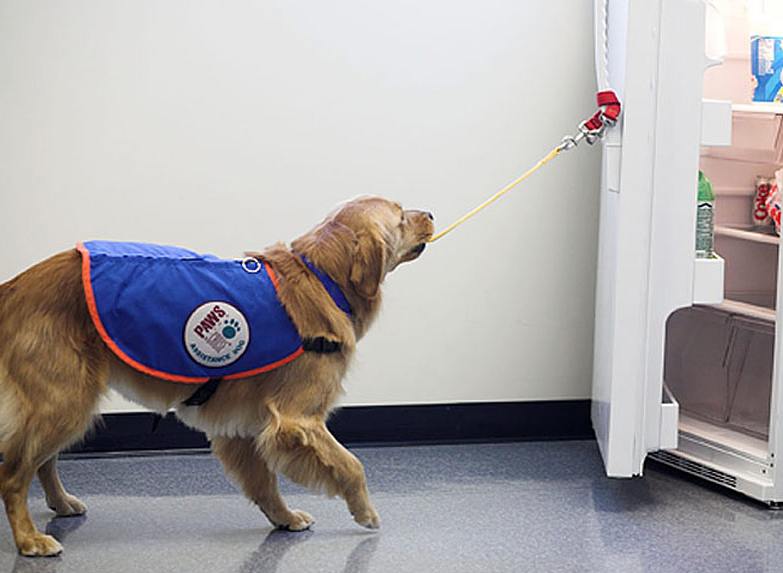Our furry canine best friends help and support us in ways only other dog parents can understand. For those who have disabilities, visible and invisible alike, dogs can provide assistance that is not only medically therapeutic, it can be life-saving as well. To recognize and honor all the dogs that have helped, and even saved their human counterparts, International Assistance Dog Week was created. Celebrated for a week beginning the first Sunday in August annually, International Assistance Dog Week 2018 takes place August 5 through August 11.
When many people think about assistance dogs, they go to guide dogs for the visually impaired or service dogs that help those with mobility issues navigate through life. But it is also more and more common to come across canine helpers that alert their owners to the potential for seizures, as well as dogs trained to provide a therapeutic and stable presence in the midst of panic attacks or episodes triggered by PTSD. But these are just the tip of the iceberg:
- Courthouse dogs help participants in legal proceedings and court rooms, as well as law enforcement facilities, child advocacy centers and district attorney offices.
- Diabetic alert dogs detect and provide early alert to their owners when their blood sugar is in danger of dipping too low or jumping too high.
- Autism dogs help those on the autism spectrum by providing a protective presence to their owners and sometimes even physical support, that allows them to participate in activities they may have otherwise avoided.
- Facility dogs are trained to encourage physical movement and even help with small tasks for those in assisted-living facilities.
- Combat Operational Stress Control (COSC) work with the US Army’s combat and operational stress control teams, allowing them to break down stigmas that are often present when dealing with mental health issues associated with combat service.
- Hearing dogs are trained to listen for certain sounds, like alarms, whistles, crosswalk signals, etc., and alert their owners to the sounds and even prompt based on the type of sound.
- Hospital therapy dogs help with recovery by providing a calming presence and bringing smiles to the faces of patients who are critically or chronically ill.
- Ministry dogs, like courthouse and hospital therapy dogs, are trained to be a calming presence and help in mental and emotional healing through the love only four-legged furry friends can provide.
As you can see, there are many types of assistance dogs. This list is by no means exhaustive, as the world continues to become enlightened to how dogs are able to assist and support others.
We should also take this opportunity to recognize and honor all those who have dedicated their time, money, energy and love to raising and training these astounding animals. Every year, these amazing people take home puppies to train them for specialized tasks, knowing that shortly they will have to move on to their forever home. Volunteers dedicate time and effort to helping with environmental and behavioral training so a new batch of canines can become full-fledged assistance dogs. And let’s not forget those who help organize, arrange and facilitate the adoption of assistance dogs into the families who need them so much. Total Veterinary Care thanks each and every one.
Learn more about International Assistance Dog Week here.








